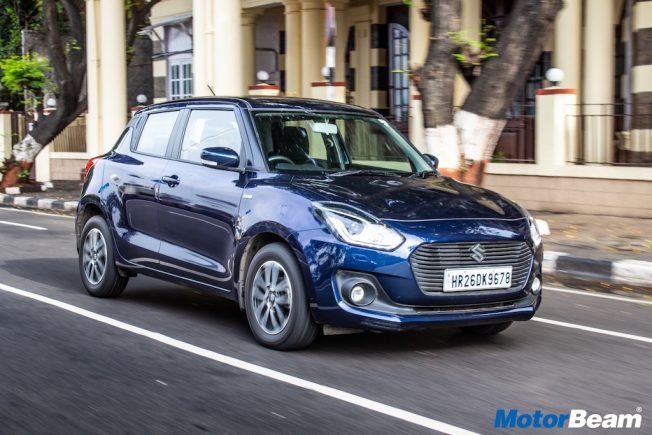Is Maruti Suzuki placing the right bet by going sans diesel engines?
The automobile industry is going through its worst time ever with the biggest shift in car technology – connected cars, self driving cars, electric vehicles and what not, it’s not the best time to be a car maker (but neither is it the best time to do anything else either!) Further making life difficult for car manufacturers are tighter emission norms, BS6 set to go live in India within the next 70 days! The major impact is on diesel cars and India’s largest car maker, which actually played a pivotal role in putting 80% diesel cars on the road today, wants to stop selling diesel engined vehicles altogether!
Maruti Suzuki is India’s largest car maker, every second car sold in the country adorns the S badge. The company’s biggest market is India, they produce the most cars here, they have the most models, the most service centres, the highest number of touch points, heck, they even have a sub-brand NEXA which sells more cars than every other car brand in the country (except Hyundai). These numbers are BIG and to take a risk as big as discontinuing diesel, makes absolutely 0 sense, I repeat nil, nada, zilch sense. After all, if it ain’t broke, why fix it?
While percentage sales of diesel is far lesser in smaller cars, the Vitara Brezza accounts for 100% of Maruti Suzuki’s SUV sales and more than 5 lakh units have been sold, each and every one of them powered by the Fiat sourced 1.3-litre diesel engine which is seeing its farewell now after doing duty for the past 12 years in almost all of Maruti’s diesel cars (sans a few units on the Ciaz and Ertiga which are powered by the new 1.5-litre diesel mill). But the company plans to ditch diesel power, in lieu of petrol power only (some with hybrid assistance), this decision comes as a shock when all rival brands will offer a diesel engine, complying with BS6 emission norms.
Now some might say that the Ertiga and XL6 also sell well, in spite of the latter being a petrol only model. Maruti seems to be intentionally selling its diesel cars at a bigger premium to pull people towards their petrol offerings. The price difference between the petrol and diesel top-end variants of the Ertiga happens to be a staggering Rs. 2.3 lakhs, no way is a diesel engine this much more expensive to command such a massive premium over a petrol engine, unless of course it’s a twin-turbo diesel which in this case, it’s not!
Multiple reports suggest there is more than meets the eye, either Maruti is playing the dummy (to fool rivals to drop their diesels as well) or they just aren’t able to get their newly developed 1.5-litre diesel engine comply with BS6 emission norms at the budgeted cost. Whatever said and done, this just means diesel buyers will have to look elsewhere and almost every brand is ready with BS6 compliant diesel engines in their portfolio.
However, it doesn’t make sense, why did Maruti make the 1.5-litre diesel in the first place if they didn’t intend to sell diesels post BS6, because they could continue using the Fiat sourced oil burner till BS4 norms were in play. Or is the shift away from diesel (in terms of sales) so high that Maruti decided it’s time they promote the change back to petrol power? There is no denying there is demand for diesel cars because they are definitely more efficient than petrols (even the ones equipped with micro-hybrid systems) and there is no way that a petrol engine (even a turbo petrol for that matter), will match a diesel engine’s stupendous torque output.
To sum it up, if Maruti indeed decides to go sans diesel post April (when BS6 emission norms come into play), I think it’s a big risk and a one which they shouldn’t take in the first place. Being the market leader with considerable sales from diesel cars, the Indo-Japanese automaker shouldn’t give in so easily because not a single major car brand is dropping diesels from their portfolio (Renault is following Maruti and their strategy seems questionable too). With sales not on the uptick as expected but stock price inching closer to the 52-week high, maybe Maruti knows something all of us don’t, or maybe, it’s time for the Koreans to increase their market share with eyes firmly set to dethrone the long standing king from the numero uno spot!
Some fun facts: Swift, Baleno, Dzire, Brezza, Ertiga and Ciaz are the top-sellers in their respective segments (2019 calendar year sales) and come with a diesel engine. All the aforementioned cars’ primary rivals will continue to be offered with a BS6 compliant diesel engine. Meanwhile, Maruti wants to offer CNG as a diesel alternative which according to me is akin to running on the treadmill instead of doing it in a serene park, both give a similar result but where is the fun in the former?

